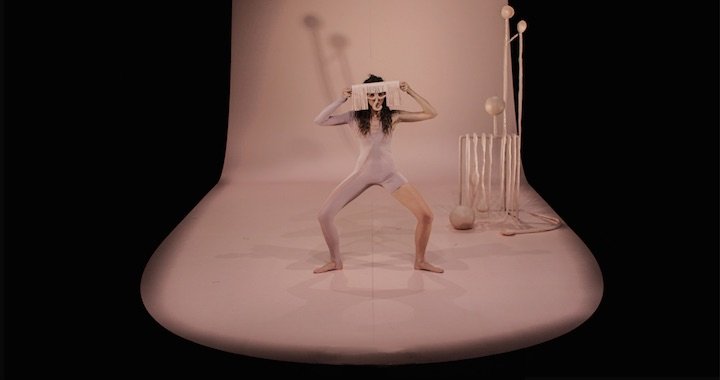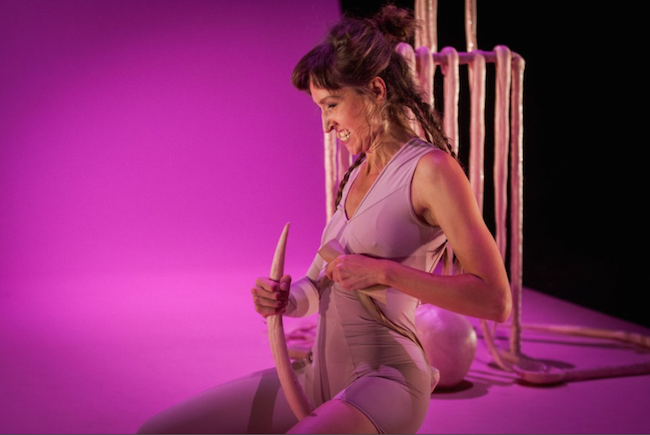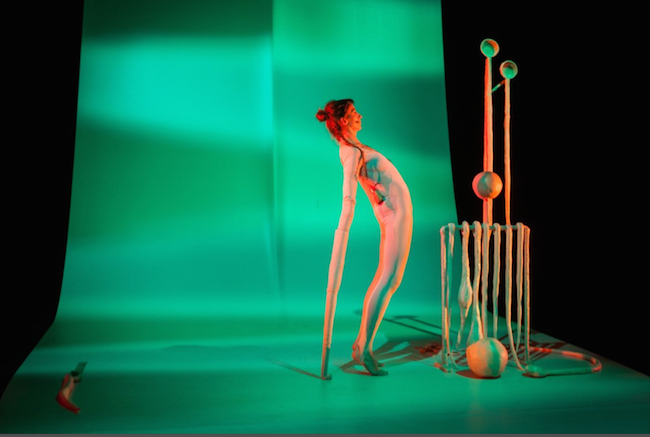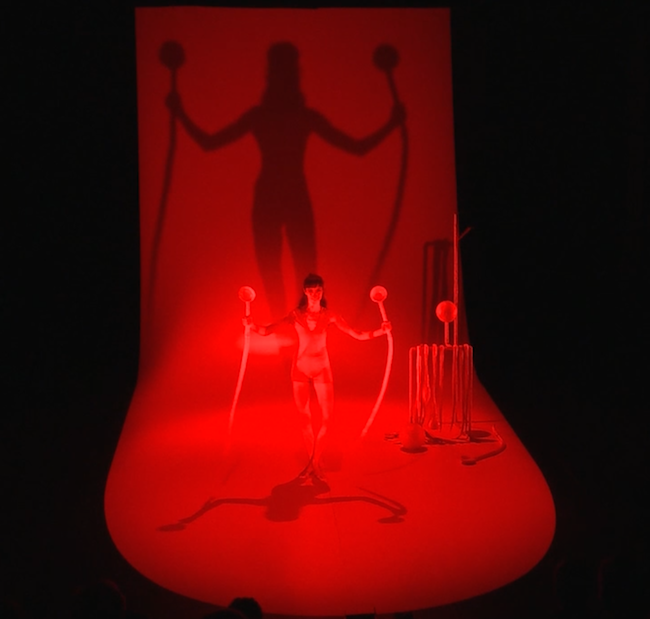
Doctorate degree granted by the tongue
Lithuanian-born, New York-based artist Ieva Misevičiūtė talks about her latest production “Tongue PhD”
Weronika Trojańska
25/10/2016
Misevičiūtė works in both visual arts and theater. A former clown, holder of a Master’s degree in Cultural Analysis and Political Studies, trained in various techniques such as butoh, physical theater, dance, stand-up and everything in-between, Ieva Misevičiūtė has as many stage faces as your imagination can grasp or invent. “I like art that is convincingly unbelievable, that makes me want to live, feel sad and embarrassed that I don’t do enough” says the artist.
She has presented her work at such venues as: Centre Pompidou in Paris; MoMa PS1, SculptureCenter, Performa 09 Biennial at the Swiss Institute in New York; dOCUMENTA (13) in Kassel; De Appel art center in Amsterdam and Contemporary Art Center in Vilnius among many others. Misevičiūtė co-curated the 11th Baltic Triennial of International Art at CAC, Vilnius. She was a speaker at the Sommerakademie im Zentrum Paul Klee in Bern and is a visiting lecturer at Malmö Art Academy. Her recent productions include “Lord of Beef” (opening night at LAXART art center, LA) and a performance and an exhibition of sculptures “Tongue PhD, hard cover” (Sculpture Center, New York, US). Her latest solo performance “Tongue PhD” premiered this September at The Kitchen in New York City.

Ieva Misevičiūtė. Tongue PhD. Courtesy of Artist
Why the tongue? What’s so fascinating about it?
I am fascinated how the tongue is a bridge to both madness and intelligence; something that bares the memory of an animal, the instinctual, but also is the main tool with which we express our humanness.
How did you come across the idea of making “Tongue PhD”?
One Sunday evening I was running across New York in a typical New York fashion ‒ “always late” ‒ to my Sunday butoh class with Vangeline. I ran into the class that had already began, dropped my bag, took off my jacket and immediately joined this dance, where all the dancers in the room kept their tongues out, bouncing in a circle. We kept our tongues out for the next two hours, slipping and sliding on each other's saliva.
What was happening to our minds is hard to describe; it certainly was a psychedelic trip. Later I met with Vangeline (she was my coach at that time) and asked if we could work more with this incredible matter. She gave me a two-week task to do 40-minute dancing sessions with my tongue out, never taking it in, (there were few more physical constrains in line with butoh work).
I did this exercise for two weeks; each day was radically different. Sometimes I would have a lot of pleasure doing this dance, sometimes pain or fear, or even experiences close to madness would happen. Afterwards, I would write down all the ideas that came to me. In two weeks, I ended up with a large pile of my notes. When I reviewed them, they appeared to be very systematic, almost like chapters, each investigating a different metaphorical lens of the tongue. As I had quit my academic education right before I should have pursued a PhD, I thought to myself, “Ha! this IS my PhD, done exactly in the manner that I believe new academic research should be done!”.

Ieva Misevičiūtė. Tongue PhD. Courtesy of Artist
During the performance, you switch between different styles of dance and choreography. Where did your inspirations come from?
When I am making a piece, I typically do character studies of a few animals, some insects, some objects and sometimes people. All these elements end up morphing together and creating imaginary beasts — half objects, half human, half insect, half slime. Precision is the key when you try to communicate something abstract. Thus, for each of these characters I find a different training method, I study ballet, belly dance, mixed martial arts, butoh, buffoonery, different improv techniques…

Ieva Misevičiūtė. Tongue PhD. Courtesy of Artist
You said in your monologue that the chapters of the “thesis outline” could be read in any order one wants ‒ or all at once. Can the performance also be viewed that way?
I believe in the validity of research that arises from the subject itself and is not based on outside sources written on the subject. In that case, the subject should also inform the format in which the research is communicated.
The tongue is a muscular hydrostat ‒ a muscle-moving-muscle mechanism. There is no hierarchy there, nor a very clear structure ‒ as opposed to vertebrate mechanisms. To follow the logic of the tongue, I say: “I will present all the chapters here on stage; however, the chapters will appear at your own will in your own chosen order, or all at once.” One can only structure experiential and soft knowledge through their own will.